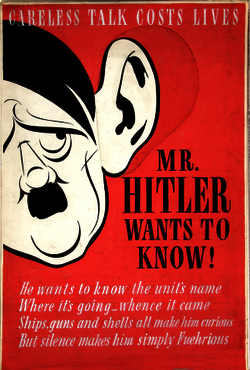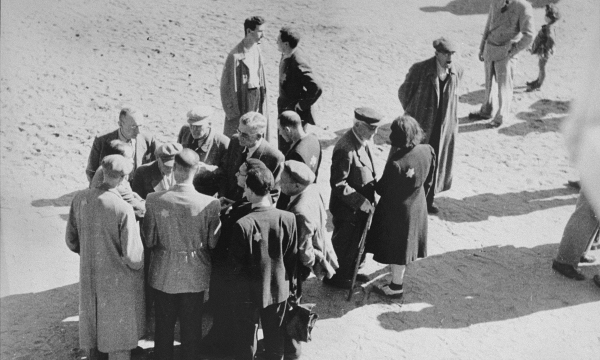- The Institute
- Research
- Dictatorships in the 20th Century
- Democracies and their Historical Self-Perceptions
- Transformations in Most Recent History
- International and Transnational Relations
- Edited Source Collections
- Dissertation Projects
- Completed Projects
- Dokumentation Obersalzberg
- Center for Holocaust Studies
- Berlin Center for Cold War Studies
- Publications
- Vierteljahrshefte
- The Archives
- Library
- Center for Holocaust Studies
- News
- Dates
- Press
- Recent Publications
- News from the Institute
- Topics
- Reordering Yugoslavia, Rethinking Europe
- Munich 1972
- Confronting Decline
- Digital Contemporary History
- Transportation in Germany
- German Federal Chancellery
- Democratic Culture and the Nazi Past
- The History of the Treuhandanstalt
- Foreign Policy Documentation (AAPD)
- Dokumentation Obersalzberg
- Hitler, Mein Kampf. A Critical Edition
- "Man hört, man spricht"
- Dates
- Press
- Recent Publications
- News from the Institute
- Topics
- Reordering Yugoslavia, Rethinking Europe
- Munich 1972
- Confronting Decline
- Digital Contemporary History
- Transportation in Germany
- German Federal Chancellery
- Democratic Culture and the Nazi Past
- The History of the Treuhandanstalt
- Foreign Policy Documentation (AAPD)
- Dokumentation Obersalzberg
- Hitler, Mein Kampf. A Critical Edition
- "Man hört, man spricht"
„Man hört, man spricht“
Informal Communication and Information „From Below“ in Nazi Europe (INFOCOM)
INFOCOM is a five-year collaborative research project at the Leibniz Institute for Contemporary History (IfZ) dedicated to investigating the intersection between official, “from above,” and state-driven communication and “from below” practices of information production, gathering, and interpretation in Nazi Germany and Nazi-occupied Europe. Led by Dr. Caroline Mezger, the project is funded by the Leibniz Association within the framework of its “‘The Best Minds’ – Leibniz Junior Research Groups” program.

Inspired by cultural histories of National Socialism, media studies, and historical anthropologies of violence and war, the project highlights “from below” practices of communication — especially rumor — to explore innovative questions and establish a modern, transnational history of communication under National Socialism. How did individuals in Nazi Germany and its occupied territories construct knowledge in discursive fields dominated by censorship, state propaganda, and authoritarian rhetoric? What might the brokerage, form, and interpretation of informal information reveal about practices of inclusion and exclusion, gender relations, ethnic categorizations, or the distribution of power in a given society? How might we conceive of the interactions between societies and subjectivities in conditions of mass violence and exception, or between construals of reality and individual/collective agency?
To explore these questions from a multidisciplinary, transnational, and comparative perspective, the project is collaborating with a renowned network of cooperation partners from Germany and beyond. These include Prof. Dr. Ulf Brunnbauer, Leibniz Institute for East and Southeast European Studies (IOS) in Regensburg; Prof. Dr. Jan Grabowski, Polish Center for Holocaust Research; Dr. Stefan Martens, German Historical Institute Paris; Prof. Dr. Jochen Oltmer, Institute for Research on Migration and Intercultural Studies (IMIS) in Osnabrück; Prof. Dr. Roberta Pergher, Indiana University; Prof. Dr. Miloš Řezník, German Historical Institute Warsaw; Prof. Dr. Marsha Siefert, Central European University; Dr. Oswald Überegger, Competence Centre for Regional History (ZefüR) at the Free University of Bozen-Bolzano; and Prof. Dr. Yfaat Weiss, Leibniz Institute for Jewish History and Culture – Simon Dubnow (DI).
The following projects are part of "Man hört, man spricht":
- Rumor and Displacement: A History of Forced Migration under the Third Reich, 1938-1948 (Principal Investigator: Caroline Mezger)
- Hearing and Speaking in War: Practices of Informal Communication in the National Socialist Majority Society, 1939–1945 (Investigator: Felix Berge)
- Indirect Informal Communication During the Second World War in Occupied Poland (working title) (Investigator: Izabela Paszko)
- Battle of the Whispers: Government Control and Subversive Employment of Political Rumor in Occupied France (1940-44) (Investigator: Manuel Mork)

Image Sources:
Title Image: A group of Polish Jews converses in a reading room in front of a large map of Poland, before 1939, United States Holocaust Memorial Museum, courtesy of Dr. Anna Wieteska, Photograph Number 25452 (cutting).
Image 1: British poster “Careless talk costs lives. Mr Hitler wants to know!”, 1939 – 1945, Collections of The National Archives (United Kingdom), catalogued under document record INF3/238 [Public domain], commons.wikimedia.org/wiki/File:INF3-238_Anti-rumour_and_careless_talk_Mr._Hitler_wants_to_know.jpg
Image 2: Jews converse outside in the "Sammelstelle" [gathering place] in the Kovno ghetto, 1941 – 1944, United States Holocaust Memorial Museum, courtesy of George Kadish/Zvi Kadushin, Photograph Number 81110 (cutting).


